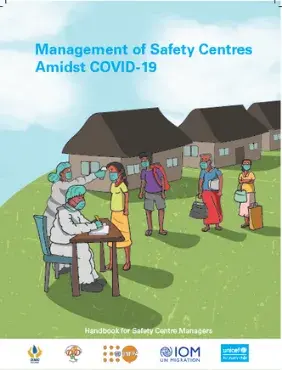Sri Lanka, an island nation, is prone to natural disasters caused by floods, cyclones, landslides, tsunami, drought and coastal erosion with increasing instances of environmental pollution related hazards as well. Though the disasters in Sri Lanka are mostly hydrometeorological in nature, epidemics such as dengue are highly prevalent in the country too. The global pandemic COVID-19 has significantly affected Sri Lanka since early 2020 and the impacts are visible across many sectors, affecting different aspects of human lives.
By evaluating the multidimensional risks of managing safety centres and /camps in the new normal, this booklet has been developed at the initiative of the Disaster Management Centre (DMC) with the support of the Disaster Preparedness and Response Division (DPRD), Ministry of Health, United Nations Children’s Fund (UNICEF), United Nations Population Fund (UNFPA) and International Organization for Migration (IOM). The booklet’s prime objective is to ensure that the key components of camp management of providing assistance and protection to persons seeking temporary shelter are followed as per accepted international standards and best practices, and is an outcome of an online or virtual training conducted on the theme of “Management of Safety Centres Amidst COVID -19” by the said organisations, in June 202.


